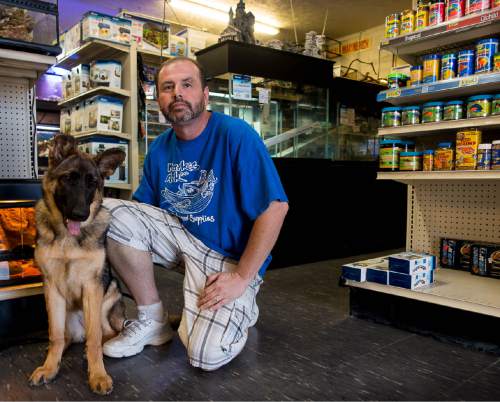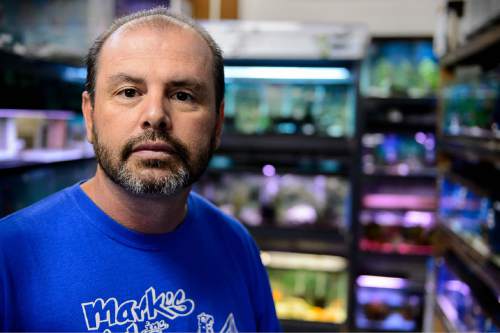This is an archived article that was published on sltrib.com in 2015, and information in the article may be outdated. It is provided only for personal research purposes and may not be reprinted.
Pet stores in unincorporated Salt Lake County had better think twice before trying to sell an animal that came from a "puppy mill."
At the behest of Councilman Arlyn Bradshaw, now executive director of Best Friends Animal Society Utah, the County Council voted 6-1 Tuesday to adopt an ordinance regulating sales of "dogs, cats and rabbits at commercial animal establishments."
The ordinance requires unincorporated-area pet stores to get all of their puppies, kitties and bunnies from animal shelters, rescue organizations or nonprofits dedicated to animal welfare. Store owners also will have to keep a "certificate of source" describing where each animal in the store came from.
No penalties are described in the ordinance for violating its provisions.
Bradshaw said he is unaware of any pet stores selling animals obtained from so-called puppy mills, and that large commercial operators like PetSmart already have corporate policies requiring their animals to come from legitimate groups.
Still, he felt it was wise to get in front of a potential problem and to show that "as a community, we value the humane treatment of animals and we don't believe puppy mills are a [defensible] source."
Bradshaw said animal-welfare advocates know of puppy mills that operate in inhumane ways, making puppies more of a commercial product than a family member.
"A puppy mill is a commercial endeavor that repeatedly breeds females over and over to have puppies for significant profit, often in subpar housing," he elaborated.
This ordinance is an extension of the County Council's 2010 approval of a law that established regulations for humane breeding of animals in the county, Bradshaw said.
Some breeders initially resisted that ordinance, he added, "but in the end, breeders that complied with the ordinance were quite happy the county took that step and they can identify themselves as licensed and humane breeders."
Even though he's not impacted by the ordinance because his pet store is in Taylorsville, Todd Poulson of Mark's Ark did not like the county's approach, which he characterized as "villainizing scare tactics."
Poulson said the ordinance unfairly cracks down on pet stores. "You're assuming pet stores are bringing in lots of puppies. That's maybe 1 to 2 percent," he said.
Responded Bradshaw: "Then this wouldn't affect 99 percent."
But Poulson sees the ordinance as a way of making pet stores buy their animals from the county's shelter. "This is a money source for them," he said. "They like to be the only game in town selling dogs and cats."
Poulson found an ally in County Councilwoman Aimee Winder Newton, who praised the shelter for being classified as a no-kill facility but added, "I'm not a big fan of government imposing undue regulations on business."
"If we don't have an issue with this in the unincorporated area, I'm having a hard time wrapping my head around passing an ordinance when we don't know who it will affect," Newton said. "I would support an ordinance discouraging puppy mills."
She cast the lone vote against the ordinance. The rest of the council sided with Bradshaw, led by council Chairman Richard Snelgrove, who maintained "puppy mills are first cousins to animal cruelty."
The Humane Society of Utah endorsed the County Council's action, calling it a "great step forward in decreasing pet overpopulation problems in Utah."
"It has been a long time coming," added Gene Baierschmidt, the organization's executive director. "The resale of dogs, cats and rabbits through pet stores has been a contributing factor in pet overpopulation because these animals are not spayed or neutered when sold and unwanted animals end up in shelters like the Humane Society of Utah. There are plenty of great animals available for adoption in shelters and rescues."
Shelters and rescue groups are nonprofits, added Humane Society spokeswoman Deann Shepherd, so any adoption fees charged are strictly reimbursement for the cost of taking in animals. There is no profit like a pet store would expect to get.
"For pet stores to be in support of finding homes for animals already in our care would provide a lot of positive attention for their stores," Shepherd said. "This is an opportunity for stores to make their profit off the products needed for pet care rather than the pets themselves."





